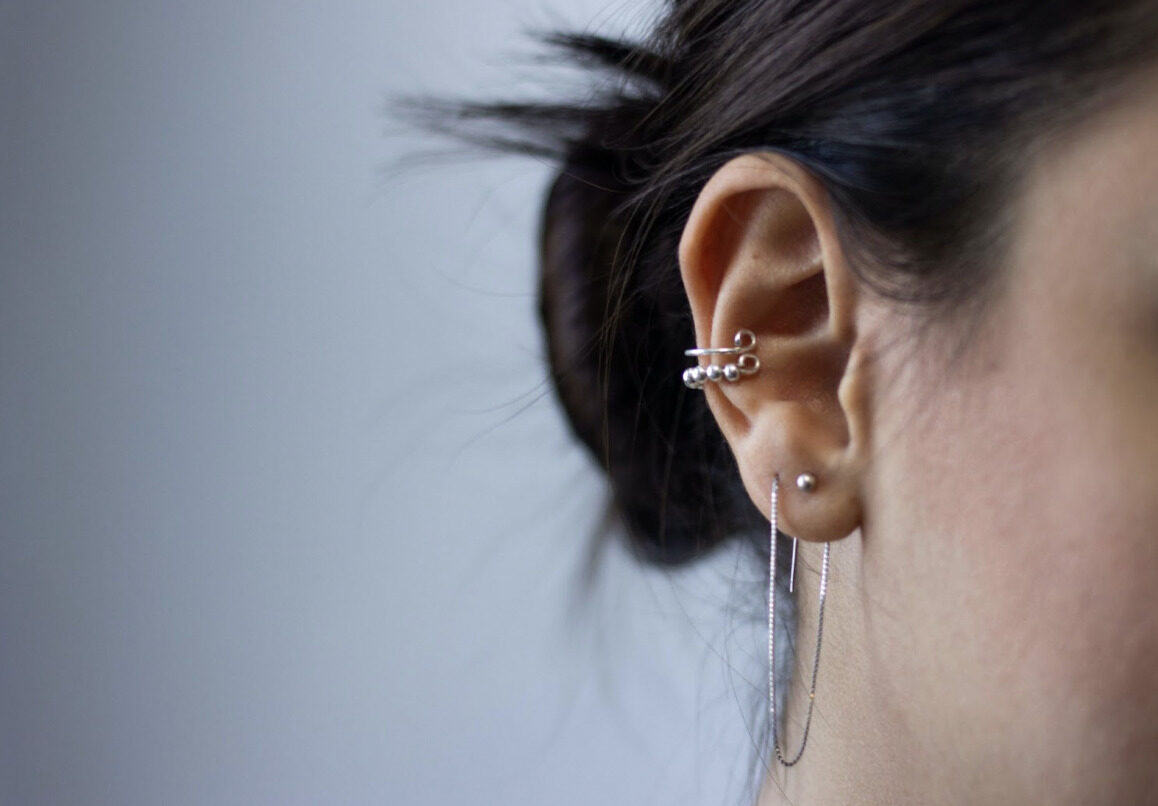Ears come in all shapes and sizes. Some are big, some are small. Some are floppy, and some are pointy. But no matter what they look like on the outside, they all have one common purpose: to help us hear! In this blog post, we will discuss how ears work and what can go wrong with them. We will also provide information about hearing loss and how to prevent it.
How Do Ears Work?
The ears are one of the body’s most important organs for hearing and balance. The ear has three main parts: the outer ear, the middle ear, and the inner ear.
Outer Ear
The outer ear is made up of the visible part of the ear, called the pinna or auricle, and the ear canal. The pinna helps to funnel sound waves into the ear canal. The ear canal is a short tube that leads from the outside of the head to the eardrum. The eardrum is a thin piece of tissue that separates the outer ear from the middle ear.
Middle Ear
The middle ear is an air-filled space behind the eardrum. It contains three tiny bones: the malleus, the incus, and the stapes. These bones are collectively known as the ossicles. The ossicles transmit sound waves from the outer ear to the inner ear.
Inner Ear
The inner ear is a complex structure that contains the organ of hearing (the cochlea) and the organ of balance (the vestibular system). The cochlea is a snail-shaped structure that is filled with fluid. It converts sound waves into electrical signals that are sent to the brain. The vestibular system helps us to keep our balance by sensing movement and changes in head position.
What Can Go Wrong With Ears?
There are many different types of ear disorders that can affect people of all ages. Some of the most common problems include:
-Ear infections: Ear infections are one of the most common childhood illnesses. They occur when bacteria or viruses cause the eardrum to become inflamed. Ear infections can be very painful and may lead to hearing loss if left untreated.
-Tinnitus: Tinnitus is a ringing, buzzing, or roaring sound in the ears that is not caused by an external noise. It can be a symptom of an underlying condition, such as Meniere’s disease, or it may occur for no known reason. Tinnitus can be very debilitating and make it difficult to concentrate or hear clearly.
-Hearing loss: Hearing loss can occur as a result of exposure to loud noise, aging, or an underlying medical condition. It can make it difficult to hear conversations, the television, or other sounds. Hearing loss can be mild, moderate, or severe.
-Dizziness: Dizziness is a general term that describes a feeling of lightheadedness, imbalance, or unsteadiness. It can be caused by an inner ear disorder, such as Meniere’s disease, or it may occur for no known reason. Dizziness can be very debilitating and make it difficult to function normally.
However, many may wonder if your ears are popping if it is an ear disorder? Ears popping is a sign that something is wrong with Eustachian tubes. The Eustachian tubes are two small tubes that run from the back of the nose to the middle ear. They are responsible for equalizing the pressure in the middle ear. This is actually quite common and can be caused by a number of things. Most often, ear popping is simply due to a change in altitude, such as when you’re flying in an airplane. The change in pressure can cause the eardrum to expand or contract, which results in a popping sensation. Ear popping can also be caused by a cold, sinus infection, or allergies. You can learn more by clicking on the link.
How Can I Prevent Ear Disorders?
There are several things you can do to prevent ear disorders:
Avoid exposure to loud noise: Exposure to loud noise is one of the most common causes of hearing loss. To protect your ears, avoid listening to loud music, use earplugs or noise-canceling headphones when necessary, and take breaks from noisy environments.
Get your hearing checked: It’s important to get your hearing checked regularly, especially as you age. If you notice any changes in your hearing, be sure to see a doctor or audiologist for an evaluation.
Eat a healthy diet: Eating a healthy diet plays a role in maintaining good overall health, which can help prevent ear disorders. Be sure to eat plenty of fruits, vegetables, and whole grains. Also, limit your intake of salt, sugar, and saturated fats.
By following these tips, you can help prevent ear disorders and keep your ears healthy.
When Should I See a Doctor?
If you experience any of the following symptoms, you should see a doctor or audiologist:
- sudden or severe hearing loss
- ringing, buzzing, or roaring in the ears
- dizziness or vertigo
- ear pain
- drainage from the ear
- changes in hearing with a cold or sinus infection
How Are Ear Disorders Treated?
Treatment for ear disorders depends on the underlying cause. Some common treatments include:
Antibiotics: Antibiotics are used to treat infections caused by bacteria. They are not effective against viruses.
Steroids: Steroids are anti-inflammatory medications that can help reduce swelling and pain. They are often used to treat inner ear disorders, such as Meniere’s disease.
Surgery: Surgery may be necessary to treat some ear disorders. For example, a procedure called a myringotomy can be used to treat chronic ear infections. This surgery involves making a small incision in the eardrum to drain fluid from the middle ear.
Hearing aids: Hearing aids can be helpful for people with hearing loss. There are many different types of hearing aids available, so it’s important to consult with an audiologist to find the best option for you.
Ear disorders can vary in severity, so it’s important to see a doctor if you experience any symptoms. With proper treatment, most ear disorders can be effectively managed.
What Research Is Being Done?
Scientists are working to better understand ear disorders and develop new treatments. For example, researchers are studying the use of stem cells to treat hearing loss. This approach holds promise for regenerating damaged cells in the inner ear and restoring hearing. Additionally, scientists are exploring new surgical techniques, such as minimally invasive procedures, to treat inner ear disorders.

Photo by Louis Reed on Unsplash
Ear disorders are a common problem that can cause a variety of symptoms. By understanding the causes and risk factors, you can help prevent ear disorders. If you experience any symptoms, be sure to see a doctor for an evaluation.

